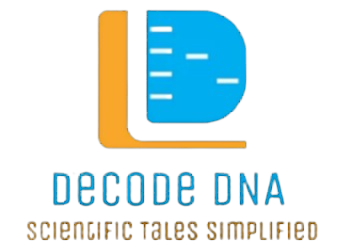Biotechnology, a dynamic and rapidly evolving field, has become a sought-after choice for ambitious researchers and scientists seeking to push the boundaries of scientific knowledge. Earning a PhD in Biotechnology courses not only opens door to cutting-edge research opportunities but also paves the way for a deeply rewarding and impactful career. In this comprehensive guide, we’ll delve into the intricacies of pursuing a PhD in Biotechnology, from understanding the diverse specializations to navigating the PhD admission process and unlocking the transformative benefits of this prestigious degree.
Exploring the Specializations in Biotechnology PhD
The field of Biotechnology encompasses a wide range of specialized areas, each offering unique research opportunities and career paths. As you embark on your PhD journey, it’s essential to explore the diverse specializations within this dynamic discipline and find the one that aligns with your passions and aspirations.
Molecular and Cellular Biology: At the heart of this specialization lies the study of the fundamental mechanisms of life, focusing on cellular processes, molecular genetics, and protein engineering. Researchers in this field delve deep into the intricate workings of living organisms, uncovering the building blocks of life, and paving the way for groundbreaking advancements in fields such as medicine, agriculture, and environmental science.
Bioinformatics and Computational Biology: This interdisciplinary field combines the principles of biology and computer science, empowering researchers to analyze and interpret complex biological data using advanced computational tools and algorithms. From deciphering genomic sequences to developing predictive models, Bioinformatics and Computational Biology offer a unique and highly sought-after set of skills.
Biomedical Engineering: At the intersection of engineering and biomedical sciences, this specialization explores the development of innovative medical technologies, therapeutics, and devices. Biotechnology PhD students in this field leverage their expertise to tackle pressing healthcare challenges, ultimately improving the quality of life for individuals around the world.
Environmental Biotechnology: Addressing the pressing environmental challenges of our time, this specialization focuses on the application of biotechnological solutions to sustainable resource management, environmental remediation, and the development of eco-friendly technologies.

Navigating the Journey to a Biotechnology PhD
Securing a coveted spot in a prestigious biotech summer training course requires a well-rounded and compelling application package. Key elements include a strong academic record, relevant research experience, and a meticulously crafted research proposal that demonstrates your passion, critical thinking, and potential to contribute to the field.
As you navigate the PhD admission process, it’s crucial to familiarize yourself with the specific requirements and deadlines of your target institutions. Decode DNA and other private institutions offer comprehensive guidance and support throughout this journey, from guidance on the application process to the availability of PhD Thesis Writing services.
The Rewards of a Biotechnology PhD: Unlocking a World of Opportunities
Earning a PhD in Biotechnology courses offers a multitude of personal and professional rewards. It opens doors to prestigious research positions in academia, industry, and government organizations, where you can collaborate with leading experts and contribute to groundbreaking advancements.
Beyond the prestigious job opportunities, a Biotechnology PhD equips you with a unique set of skills that are highly valued across various sectors. You’ll develop expertise in critical thinking, problem-solving, and effective communication – capabilities that are essential for success in both research and industry settings.
Furthermore, the knowledge and insights you gain during your doctoral studies can have a profound impact on the world around you. You’ll be at the forefront of discoveries that can revolutionize fields such as medicine, agriculture, environmental sustainability, and beyond. Your research and innovations can directly improve the lives of people and contribute to a better future for all.
Key Considerations
Embarking on a PhD in Biotechnology courses journey is a transformative and challenging experience that requires unwavering dedication, perseverance, and a genuine passion for scientific discovery. As you navigate this path, there are several key considerations to keep in mind:
- Develop a Strong Research Proposal: A well-crafted and compelling research proposal is the foundation of a successful PhD application. It should demonstrate your deep understanding of the field, your unique research interests, and your potential to contribute to the advancement of knowledge.
- Seek Mentorship and Guidance: Throughout your PhD journey, seek out experienced mentors who can provide invaluable guidance, support, and insights. These mentors can be your doctoral supervisors, senior researchers, or even professionals in the industry.
- Foster Collaborative Relationships: Biotech summer training courses often involve extensive teamwork and collaboration. Cultivate strong relationships with your peers, research colleagues, and the broader scientific community, as these connections can lead to fruitful collaborations and open new opportunities.
- Embrace Continuous Learning: The field of Biotechnology is constantly evolving, and a successful PhD candidate must be committed to continuous learning and staying up to date with the latest advancements. Engage in ongoing professional development, attend conferences, and actively participate in scientific discussions to expand your knowledge and maintain a competitive edge.
Conclusion: Embark on Your PhD Journey with Confidence
Pursuing a PhD in Biotechnology courses is a transformative journey that requires dedication, perseverance, and a deep passion for scientific discovery. By navigating the diverse specializations, mastering the admission process, and embracing the rewards of this prestigious degree, aspiring scholars can unlock a world of opportunities and make a lasting impact in this dynamic field.
Remember, the path to a Biotechnology PhD is not without its challenges, but with the right guidance, resources, and unwavering determination, you can confidently embark on this rewarding academic and professional journey. Explore the possibilities, embrace the challenges, and let your passion for Biotechnology guide you towards a future filled with groundbreaking discoveries and lasting contributions.
For more information and support, visit our website, where we are dedicated to empowering aspiring researchers and scientists like you to achieve their PhD dreams and make a difference in the world.
FAQs:
Which field of Biotechnology is best for a PhD?
The “best” field of Biotechnology for a PhD depends on your specific interests, skills, and long-term career goals. Some of the most popular and promising specializations include Molecular and Cellular Biology, Bioinformatics and Computational Biology, Biomedical Engineering, and Environmental Biotechnology. It’s essential to research these various options, assess your strengths and passions, and choose a field that aligns with your academic and professional aspirations.
How many years is a PhD in Biotechnology?
A PhD in Biotechnology typically takes around 4-6 years to complete. The duration can vary depending on factors such as the specific program, the complexity of the research project, and the candidate’s progress and dedication. Some programs may offer accelerated or part-time options, which can adjust the timeline accordingly. It’s important to understand the program’s requirements and plan your timeline accordingly.
What are the benefits of a PhD in biotechnology?
Pursuing a PhD in Biotechnology offers a wealth of benefits, both personal and professional. Some of the key advantages include:
- Access to prestigious research positions in academia, industry, and government organizations
- Opportunity to contribute to groundbreaking advancements in fields like medicine, agriculture, and environmental sustainability.
- Development of critical thinking, problem-solving, and communication skills that are highly valued across sectors.
- Enhanced career prospects and earning potential.
- Intellectual fulfillment and personal growth through intensive research and discovery
- Ability to make a tangible impact on the world through your research and innovations.
Which biotechnology course is best?
The ideal biotechnology program varies based on individual preferences, educational history, and professional aspirations. Highly esteemed and sought-after biotechnology courses encompass Molecular and Cellular Biology, Bioinformatics, Biomedical Engineering, and Environmental Biotechnology. When assessing your choices, ponder elements such as program prestige, faculty proficiency, research prospects, and harmony with your future objectives.
Can I do PhD after BSc in biotechnology?
Yes, it is possible to pursue a PhD in Biotechnology after completing a bachelor’s degree (BSc) in Biotechnology. However, it’s important to note that most PhD programs in Biotechnology require a strong academic background, relevant research experience, and a well-developed research proposal. Candidates with a BSc in Biotechnology may need to acquire additional research experience, such as through internships or master’s programs, before applying for a PhD. The key is to demonstrate your passion, academic excellence, and research potential to be considered for a competitive PhD program.


Pingback: Biotechnology PhD? Discover Top Career Opportunities in India